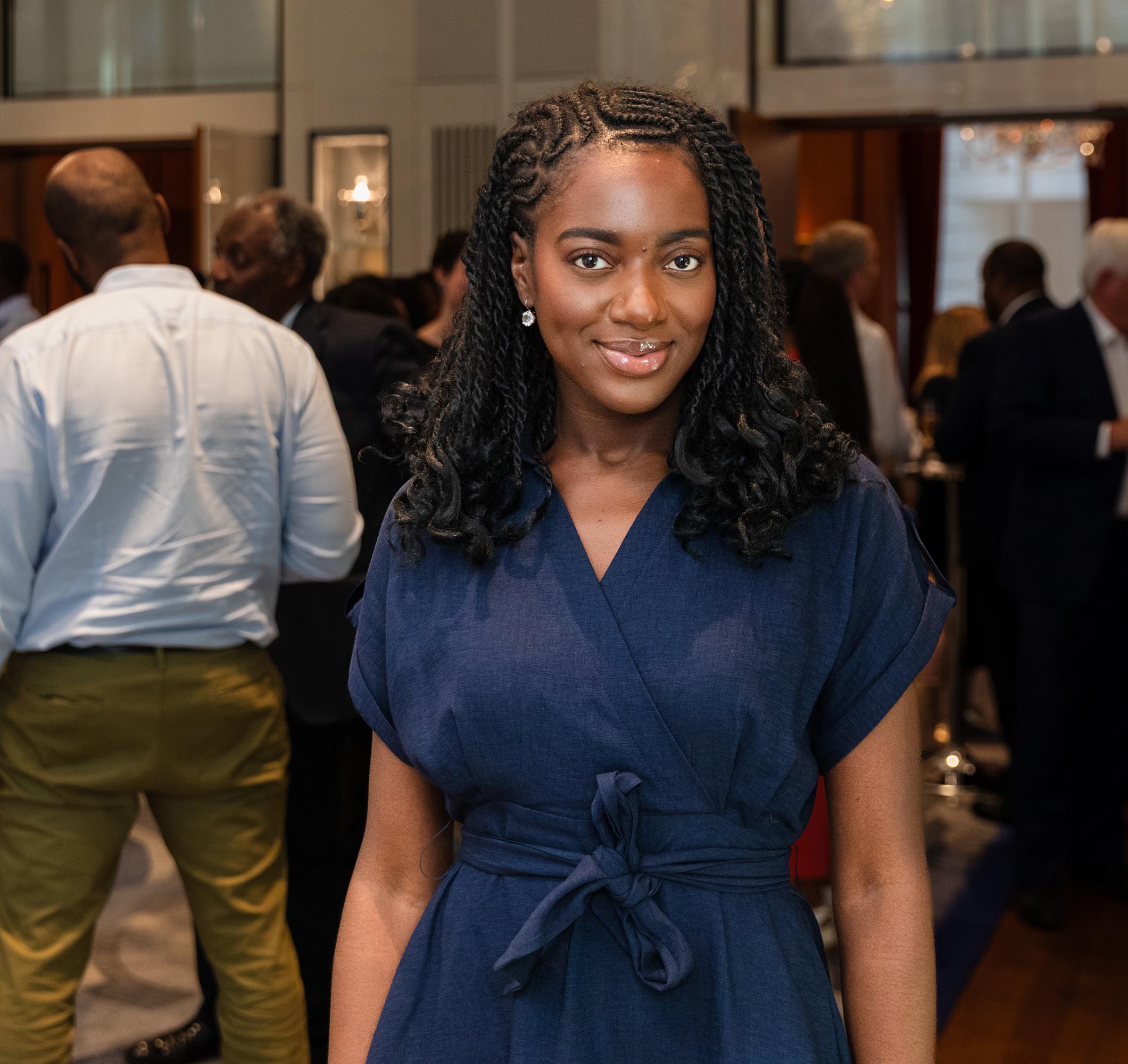
Black Talent Charter
Opportunity and Optimism
In June 2025, the Leathersellers hosted Black Talent Charter for their first C-suite readiness conference for emerging senior leaders. Four voices from this event, all connected to the Leathersellers, from a member of staff to a current student grantee, help explain the impact of the day.
In June 2025, the Leathersellers hosted Black Talent Charter for their first C-suite readiness conference for emerging senior leaders. The event was attended by over 50 senior executives from signatory organisations and was supported by the Clothworkers’ Company.
The goal of Black Talent Charter is to significantly increase the pace of black representation in British business by 2033, moving from a 70-year gap, to equitable representation within 10 years.
Four voices from this event, all connected to the Leathersellers, from a member of staff to a current student grantee, help explain the impact of the day and how through their own experiences, they represent a future of opportunity and optimism, built on principles of integrity and community, and marked by ever-growing confidence.
Okikiade Oloyede
Alumna of the Leathersellers’ Federation of Schools, and the Leathersellers’ Foundation’s Student Grants Programme. Technology Consultant at Accenture.
“I am optimistic about the future of black talent, because there is still a collective drive to advance together.”
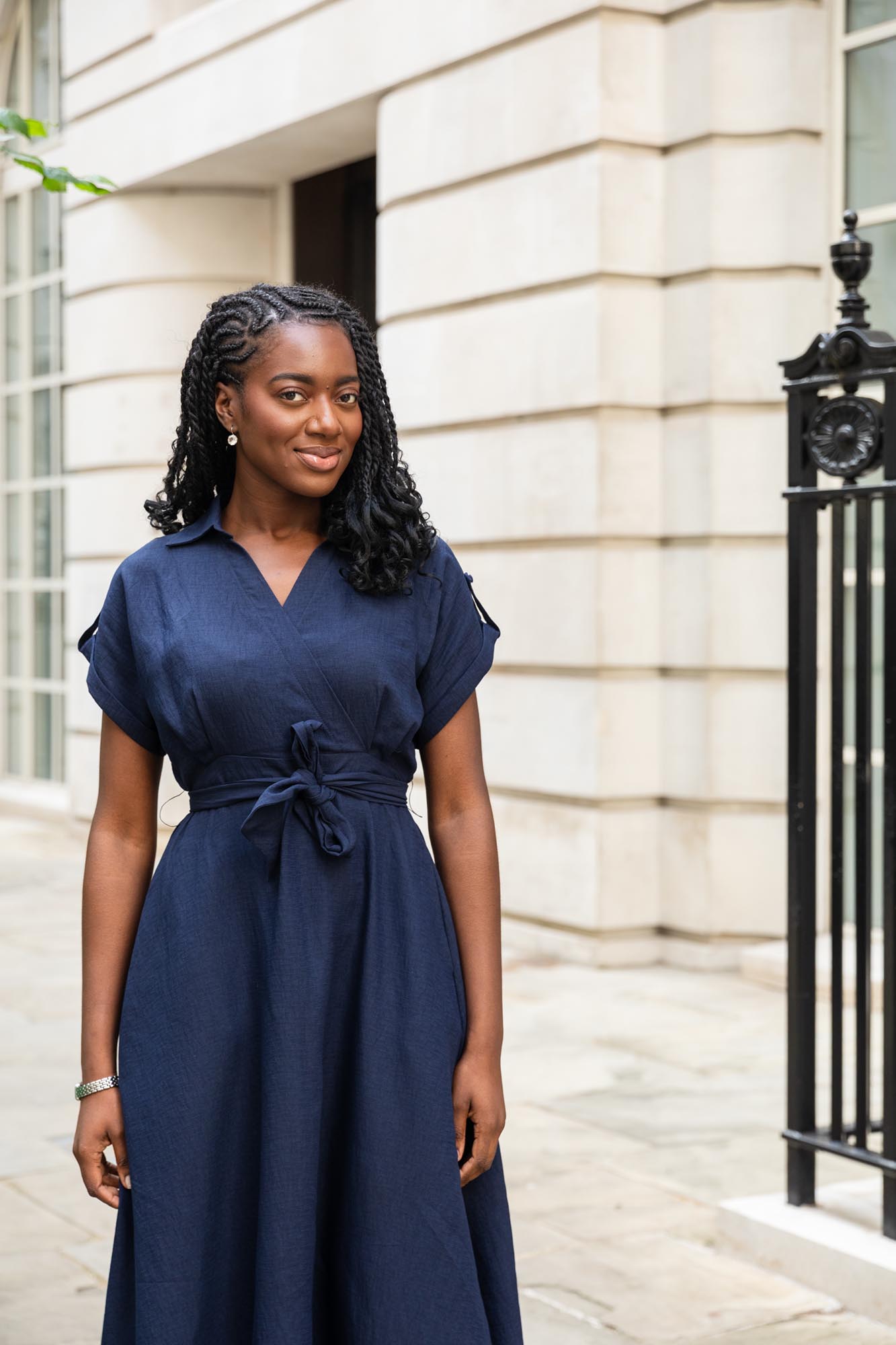 Okikiade Oloyede
Okikiade Oloyede
My favourite session of the day was the ‘Insights from The Top’ panel discussion, with panellists: Richard Iferenta, Dr Margaret Casely-Hayford CBE and Cliff Kamara. I thoroughly enjoyed the authenticity and transparency of the speakers, and the discussion was a true reflection of the power of storytelling. I felt both encouraged and inspired by their personal experiences. Dr Casely-Hayford spoke about the importance of having knowledge depth and breadth in her teams, but also how hard work and the quality of her work built her reputation and strong client portfolio. Cliff Kamara remarked on the importance of being self-aware, he advised us to identify our strengths, weaknesses, needs and goals. He also spoke about finding a purpose and creating a life outside of work, to ensure that we have perspective when setbacks or professional challenges arise. Richard Iferenta spoke about not playing small. He took opportunities as they came and discovered the value and worth of his work.
Caroline Flanagan outlined the anatomy of a good plan and how to develop our plans to help us make progress. She encouraged us not to stay stuck trying to look into the future and this resonated with me deeply, as a good friend of mine had given me the same advice a while ago. In addition to this, one of the delegates raised two qualities that will enable her to stay on track to achieve her goals i.e. protecting her time and prioritising her goals. I believe that these two qualities will also support me on my journey of growth and development.
I am optimistic about the future of black talent, because there is still a collective drive to advance together. Despite the attempts to dismantle Diversity, Equity and Inclusion initiatives in the US and the saddening responses in other parts of the world, I still believe that we have enough black talent, leaders, sponsors and allies who still want to effect the right change. I am also proud of the programmes, networks and initiatives, such as The Black Talent Charter who have made it their vision to achieve equitable representation of black talent in business.
For black talent to thrive, we need courageous leaders. We need business leaders that will stand by their commitments made around Diversity, Equity and Inclusion, despite the pressure to remove these commitments and/or to turn a blind eye to inequity. We need leaders that are invested in the progression of black talent, and this should be reflected in their commitments and their day-to-day decisions. We also need mentors and sponsors to support this journey.
Reannah Britto
Social impact founder, youth advocate, and Co-Vice Chair at the Prendergast Vale Local Governing Board (a school supported by the Leathersellers)
“For me, optimism doesn’t come in tokenistic wins or trending moments. It comes from the consistency I see in how black people are showing up: boldly, creatively and unapologetically.”
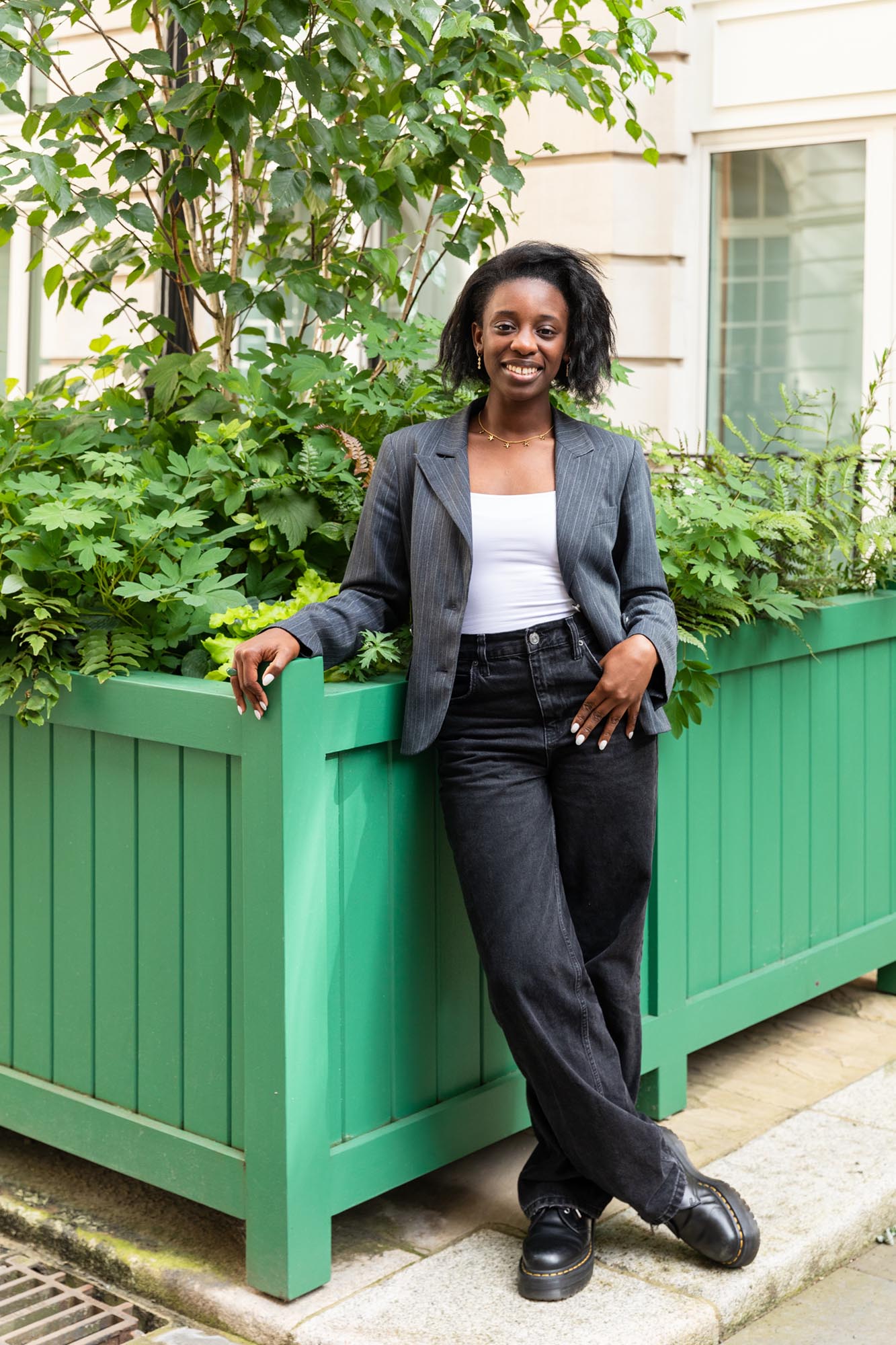 Reannah Britto
Reannah Britto
The most compelling part of the event was hearing from incredible black leaders as they shared their lived experiences – the real journeys behind their success. It can be difficult to connect the dots between where these inspiring individuals are now and where they began. Many started from humble beginnings, and it’s easy to forget that the poised, accomplished people we admire today are the result of years of unseen effort, quiet persistence and deliberate growth.
What made the day powerful were the nuances – the honesty, the vulnerability and the humility with which each speaker reflected on their path. They didn’t just speak their truth; they offered it with care. My favourite speaker was Dr Margaret Casely-Hayford CBE. Her poise, calm, presence and unapologetic honesty left a deep impression. There was something grounding about the way she carried herself – not to impress, but to connect. That, for me, was unforgettable.
In addition, what also struck me was the room itself – being surrounded by people from all walks of life, different industries, ages, and experiences, yet all united by a shared belief in the beauty, power and brilliance of black talent. There was something deeply affirming about that space – a quiet understanding that we weren’t witnessing success stories, but building toward our own. That collective energy, grounded in pride and possibility, reminded me that the possibilities are there.
There was a moment during the panel with Dr Casely-Hayford that deeply resonated with me. She said “I have an incredible drive for championing the rights of those have been ignored or left unheard”. The words landed like truth in my chest – because that is exactly how I feel. I’ve always said, and those closet to me have echoed it, that I have a strike of humanitarianism that refuses to let silence sit where injustices live. I’ve never been able to turn away from something that is wrong – especially when the people affected are unheard, unseen, or disempowered. Hearing someone of her stature describe that same internal drive made me feel profoundly seen. It reminded me that purpose isn’t something you choose – it’s something that chooses you.
The same energy shapes every part of my work. Whether it’s been through public sector roles, founding MAI Cultures, speaking in parliament, or sitting on the board for a historical philanthropic foundation, my throughline has always been clear: I centre care, voice and justice. I had a conversation with Cliff Kamara about the importance of being in alignment with yourself and that struck me too. Alignment has always been a quiet compass in my life. It governs the work I do, the rooms I enter, and the way I show up. And when you stray from it, something in you knows. In a world that often pressures us to fit into predetermined moulds, I remain committed to working and leading and in a way that is grounded, truthful and in service to others. Because when voice and values algin, that’s when real change begins and that was what resonated with me deeply at this event.
“There was something deeply affirming about that space – a quiet understanding that we weren’t witnessing success stories, but building toward our own.”
I am most certainly optimistic about the future of black talent. In many ways, it’s hard not to be, not because we’ve arrived, but because the momentum is undeniable. You only have to look around to see the waves of brilliance already in motion: black creatives, entrepreneurs, educators, thought leaders, policymakers and visionaries who are redefining industries and shifting conversations – not in the margins, but in the mainstream. But let’s be clear – black talent has never been new. It’s always existed. It’s always been rich, world–shaping and generational. The only thing that’s changed is visibility. We are no longer waiting for platforms – we are building our own. The systems that once sought to erase or contain us are now being reshaped by our presence, our influence and our refusal to shrink. For me, optimism, doesn’t come in tokenistic wins or trending moments. It comes from the consistency I see in how black people are showing up: boldly, creatively and unapologetically. It comes from watching my peers build organisations, speak in Parliament, shape policy, launch movements, mentor others, and stretch into spaces we never expected to thrive in. This gives me hope. That affirms me. That reminds me we are not exceptional – we are the norm when given room to breathe.
As a young black woman myself, working at the intersection of social justice, education and youth advocacy, I’m deeply encouraged by the richness of our current landscape. I see black women and women of colour leading with integrity, care and excellence and not just making noise, but making change, which is the path that I am on. Their presence in the rooms I walk into reminds me that there is space for my voice, my leadership, and my vision of impact.
My optimism is also rooted in the growing understanding that representation alone is not enough we are now in need of structural shifts, long term investment and intentional inclusion. And while the work is far from over, we’re no longer asking for permission to exist – we are building institutions, shaping legacy and making ourselves undeniable.
So yes, I’m incredibly optimistic – not because the future is easy, but because I see black talent owning it. And I know the generation coming up will be even more expansive, bold and brilliant than we could have ever imagined.
Gabrielle Sparkes
The Leathersellers, Financial Controller
“I felt proud to be part of a generation contributing to this change and hopeful for the next, including my own child, nieces, and younger cousins, who now see a future filled with possibility.”
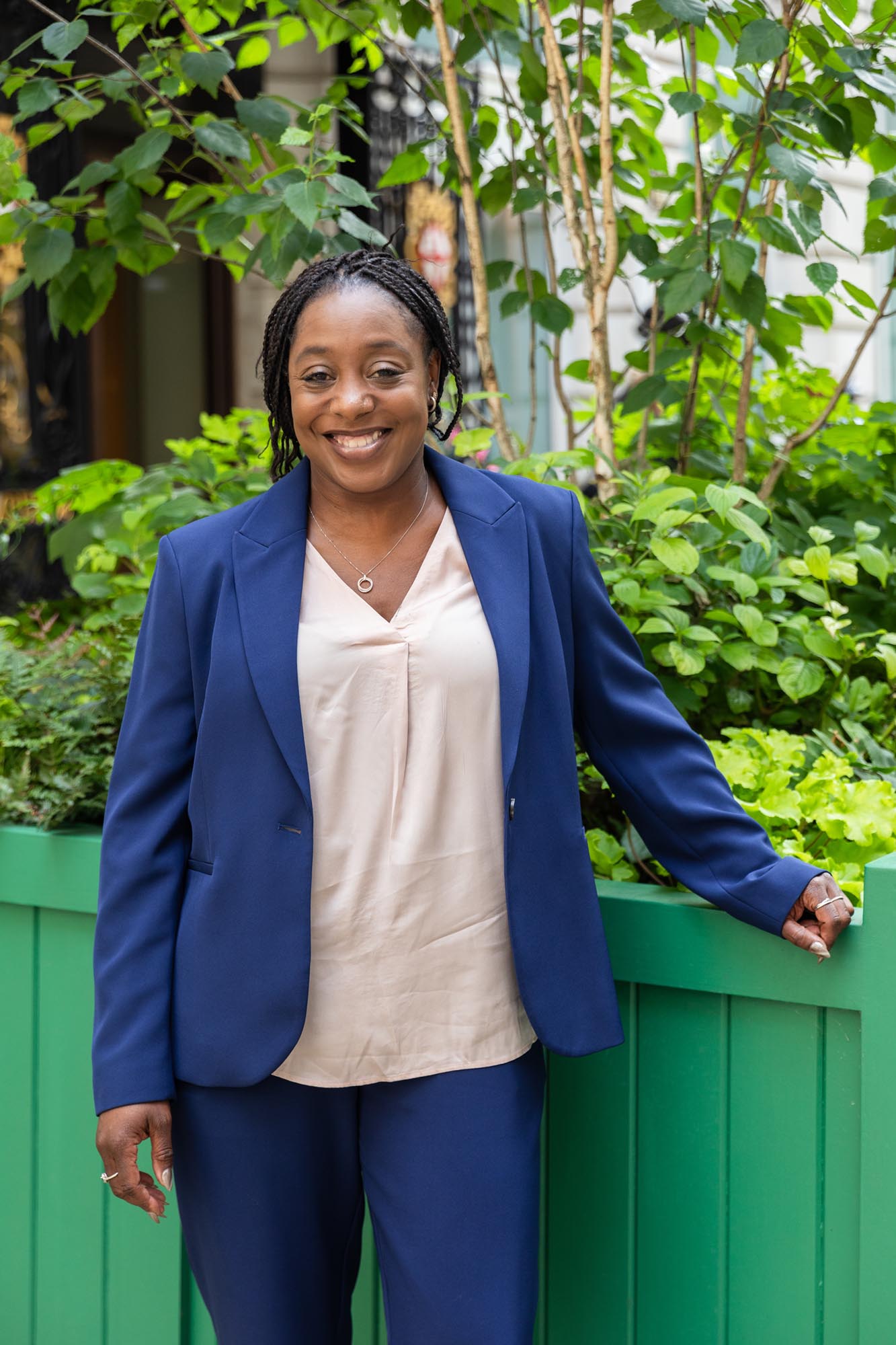 Gabrielle Sparkes
Gabrielle Sparkes
I recently had the privilege of attending the Black Talent Charter (BTC) C-Suite Readiness Event, an experience that left a lasting impression on me both professionally and personally. Prior to the event, I wasn’t familiar with BTC, but after learning about their mission, I was struck by the clarity and purpose of their work. In a landscape where diversity is gaining attention, BTC is actively working to close the gap in black representation at the executive level.
The event brought together senior leaders from BTC’s signatory organisations and partners, including KPMG and Standard Chartered, for a day of rich discussion on leadership and board readiness. The agenda was packed with inspiring speakers, practical insights, and meaningful networking opportunities, all focused on preparing black professionals for the C-suite.
What stood out most was the diversity of attendees—from a young black appointed member of the Grocers’ Company, to a young CIO from the 10,000 Interns Foundation, and professionals from firms like Grant Thornton. It was a powerful reminder of the progress being made and the role we all play in continuing that momentum. I felt proud to be part of a generation contributing to this change and hopeful for the next, including my own child, nieces, and younger cousins, who now see a future filled with possibility.
The first panel discussion, featuring Cliff Kamara, Dr Margaret Casely-Hayford CBE, and Richard Iferenta, was particularly impactful. Each speaker shared their personal journey to reach the top of their careers, including the challenges they faced along the way. In addition, the last key speaker who joined us for dinner, Kamal Ahmed, also told his story, with nostalgic memories of jokes from Lenny Henry, all of which reminded me that my own path, however modest it may seem, holds value and insight for others. A recurring theme was the importance of staying grounded, whether through family, travel, or hobbies—which I found both refreshing and affirming.
I had the pleasure of speaking briefly with Dr Casely-Hayford before her panel. She shared her passion for charitable work and its grounding influence, providing an insight that resonated deeply. I also gained valuable advice from John Coburn during his speech, and sitting next to him during dinner, on navigating the three steps toward executive leadership.
One of the most encouraging aspects of the event was the collective support from across communities. For black talent to thrive, we need mentorship and encouragement from all backgrounds. Acknowledging systemic barriers is important but so is refusing to let them define us. As my mother always reminded me: “Support, acknowledge, and focus on being the best version of yourself—in work, in life, at home and beyond.”
My own journey has been shaped by the intersection of personal and professional experiences. There were times when my mental and physical health challenged my career path. But like the speakers, I’ve been fortunate to have a strong support system—through family, friends, and now a workplace that values and uplifts me. It hasn’t always been easy, but I’ve always strived to show up and give my best. This would be the advice I would give young black talent and to be brave, another running theme throughout the day.
God’sFavour Oluwanusin
Current holder of a Leathersellers’ Foundation Student Grant at London School of Economics
“I learned that being vocal about my journey – sharing what I was doing and staying proactive – generated a remarkable return”
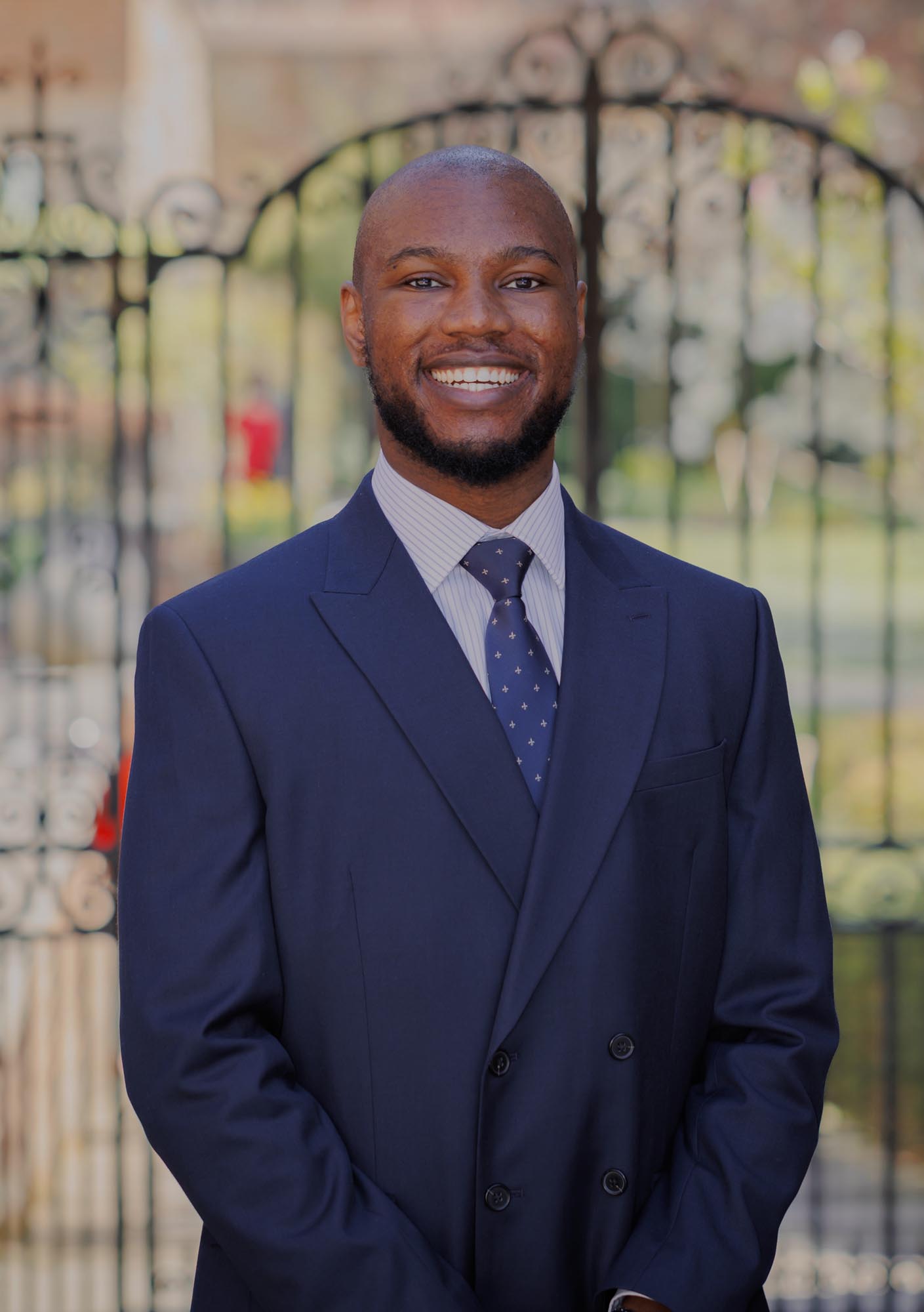 God’sFavour Oluwanusin
God’sFavour Oluwanusin
To understand the value of partnerships like the one between the Leathersellers and Black Talent Charter, first, I believe it’s vital to understand what exactly equity means. And we’ve all seen the graphic of two people trying to see over a wall.
Equity involves intentionally affording opportunities to the less-advantaged that their more advantaged counterparts have little need for, primarily due to the fortunate environment they were born into and their greater access to resources. To illustrate this, let’s look at an example of an inherent advantage and how collaboration and partnership can be used to supplement the less-advantaged with similar opportunities
Inherent Advantage
At the start of their second year of university, a young student expresses to their parents that they’re interested in pursuing a career in banking and they’d like to learn more about it. Their mum has a buddy, from back when she was studying at Cambridge, who’s currently a managing director at an investment bank; she invites him over for dinner, and he tells the student all about the industry and finishes by putting them in contact with a new LSE grad on his team. This will allow the student to learn more practical steps from someone closer in age to them.
Advantage afforded by collaboration and partnership
A young black student also expresses their interest in banking to their mum (as they’re from a single-parent household). However, their mum, who had her higher education back home in Nigeria (which is barely recognised in the UK), has no connections to the banking world. Much to her disappointment, she can’t provide much help.
Then they hear that the Black Talent Charter is hosting the C-Suite Readiness event, made possible by the collaboration with and sponsorship from the Leathersellers and Clothworkers. In an environment such as this, they hear from black industry leaders, who are few and far between, and it shows them that it’s possible to reach those heights themselves. While having dinner at the Hall to wrap up the day, they get to talking to a gentleman at their table who founded a private equity firm after a successful 10+ years in banking. They give visibility to this gentleman by explaining their background and aspirations. He offers to help out with their applications, and they exchange details to continue the conversation later on.
Our first student doesn’t have access to the invite-only BTC event, and some may see that as unequal or unfair but when you think about the true purpose of the event – to prepare young black professionals for higher level roles by providing visibility to current black seniors in those roles – you’ll realise that the first student has had access to that visibility via the numerous dinner parties over the years with his parents’ colleagues and friends. This collaborative event promotes equity by placing an additional block beneath the black student, taking them one step closer to seeing over the wall that the first student has always been able to see over.
Visibility and initiative
Reflecting on the event and thinking about my own successes and the challenges I’ve faced, there have been two central elements: Visibility and initiative.
My journey began to take substance back in year 10, when I was around 14 years old. Back then, I was academically sharp and visibly showed my fervour for academia. My form tutor noticed my academic potential and suggested I explore the Generating Genius (GG) programme – A STEM-based charity for students of colour from less-advantaged socioeconomic backgrounds. I took the initiative to speak to students in the year above who were on the programme and ensured that I submitted as strong an application as I could. That led to a place on Westminster School’s Platform+ programme, which was collaborating with GG, and eventually a full bursary to Westminster itself.
I was at a motivational conference, in the summer before Year 10, when I was, again, 14. We were told to take a beat and speak to our neighbours to the left or right of us. I could have scrolled on my phone and not played along, but instead, I took initiative and spoke to the gentleman on my left. We had a great conversation, and part way through, I learned that he was the General Manager of Mars Wrigley UK. I made my situation visible and told him that I was looking for work experience at the time, and he offered for me to spend a week at the Mars Wrigley head office in Slough. I took initiative by following up with his executive assistant afterwards via email to proceed with the arrangements.
While waiting for my entrance exam results during my application to Westminster for Sixth Form, I received a call from the School’s Platform+ coordinator. He mentioned that I’d not done incredibly well in the Physics and Further Maths subject and that he’d seen how much I enjoyed Biology and Chemistry during the Platform Plus sessions so he highly recommended that I consider switching for those subjects. I can’t say for sure if I would have passed the subsequent interview stage and secured a place if not for that teacher having visibility of my strengths and looking out for my best interests.
During my gap year, I took the initiative to scour the web for pre-university internship opportunities. They taught me the foundations of a career in finance and investment banking, and having those experiences on my CV made it a lot easier to land future experiences once I arrived at university
While at university, I made a point of posting all about my journey and career milestones on LinkedIn. This constant visibility caused recruiting agencies to reach out to me with exclusive opportunities in private equity, an industry I’ve been keen to break into for quite a few years. Without the recruiters having visibility of my experience and interests, they never would have known to reach out with those desirable opportunities.
Through all this, I learned that being vocal about my journey – sharing what I was doing and staying proactive – generated a remarkable return. Every step I took created momentum for the next. The key has been making my ambitions visible and acting on opportunities early, which ultimately led to a summer internship at a top investment bank.
READ MORE
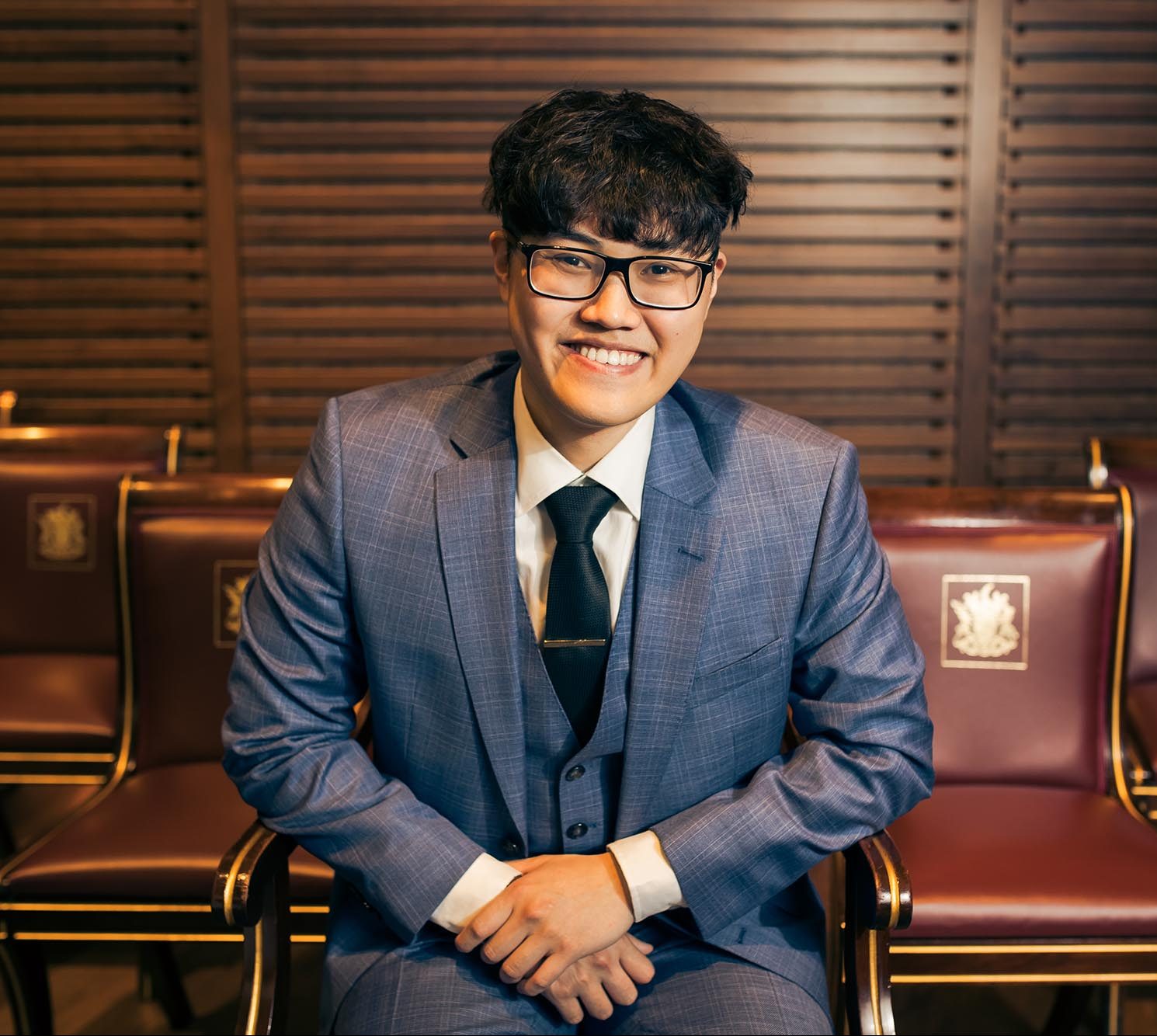
Leathersellers’ Scholarships at Colfe's School
Celebrating the long-term success of the Leathersellers’ Scholarships at Colfe’s School.
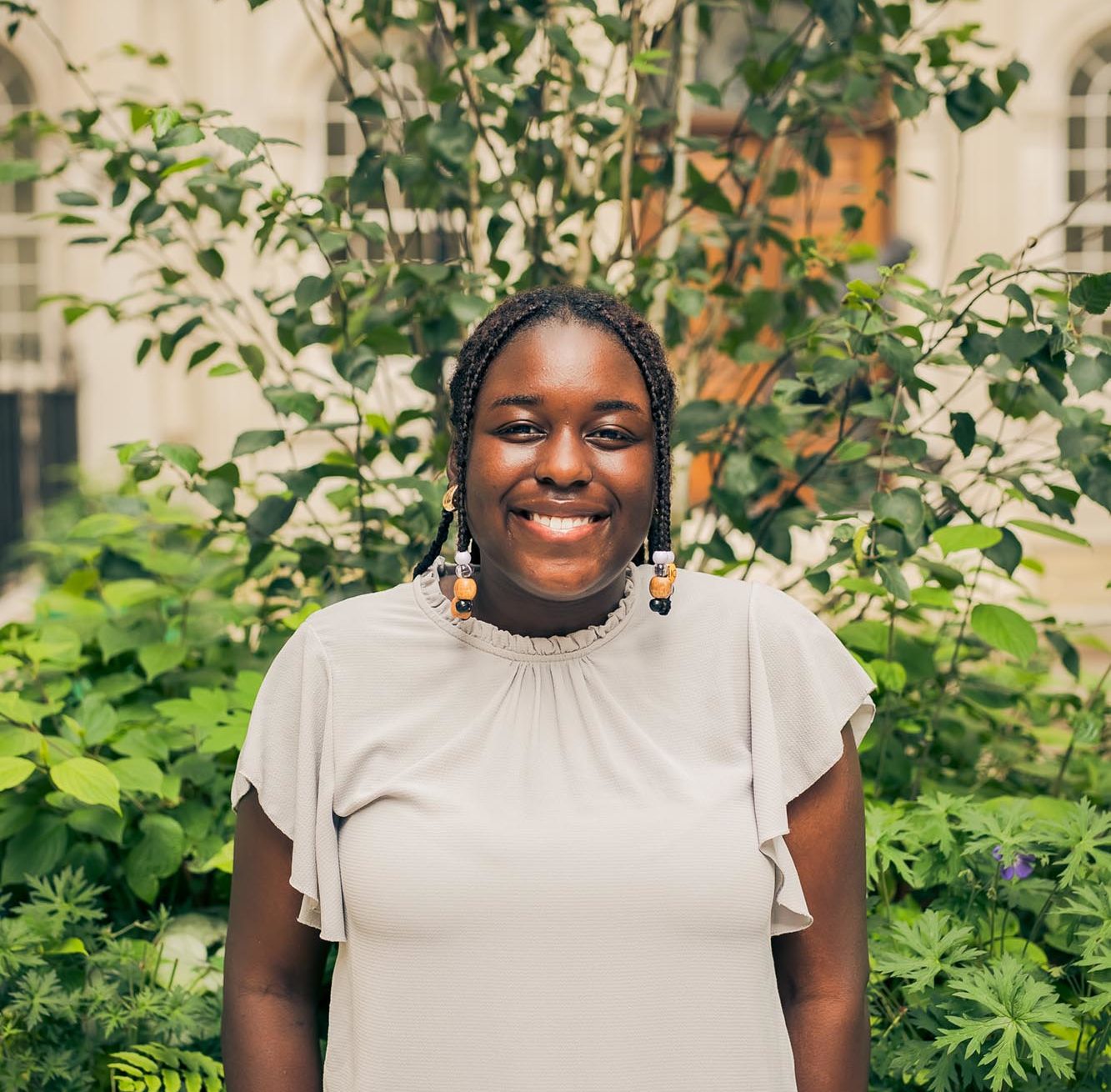
Freedom to Study, Freedom to Make a Difference
How Leathersellers’ Student Grants are helping people to pursue their passions at university and set their course for the future.
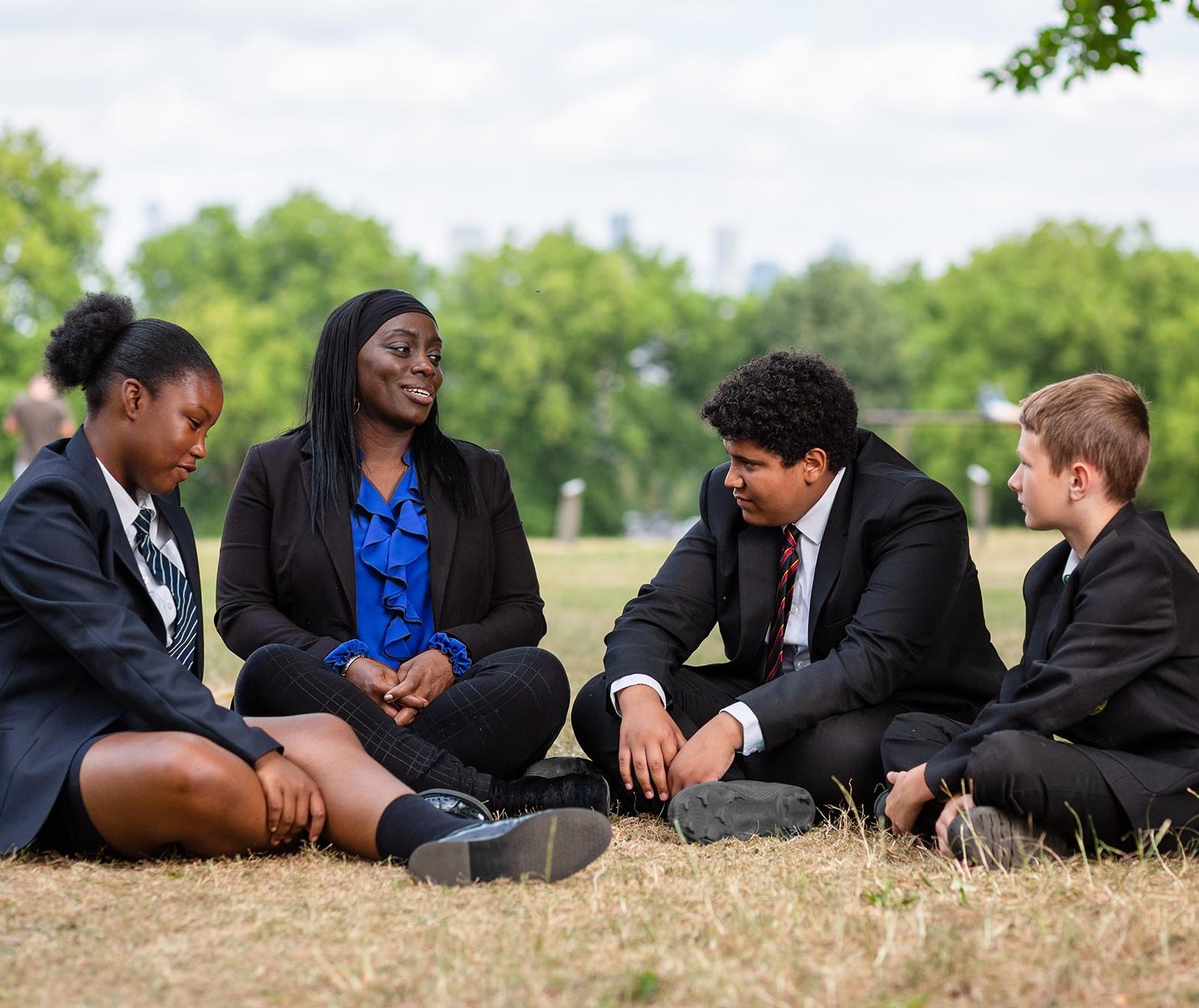
Boosting Opportunity at the Leathersellers' Federation of Schools
School led and backed by research a new social mobility project has created the dream job for Learning Mentor, Cherisa Kya-Scott.